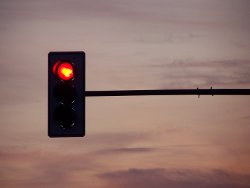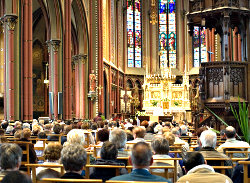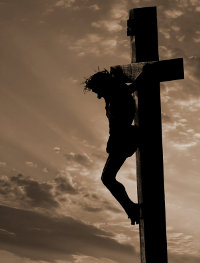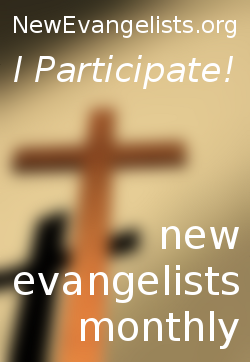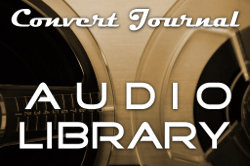
It was time last Friday for Pebbles’ and BamBam’s annual physical and shots. They are our 10 year old shih-tzu sister and brother that we still refer to as puppies. One of the endearing qualities of dogs is their total transparency of emotions. On Friday, ours were excited to go on a car ride, excited to be engulfed in the myriad of smells in the vet’s office and excited to see the other animals. That was a real treat!
The mood changed dramatically as they went back to the exam room. I can only assume memories of past visits must have flooded back. Both Pebbles and BamBam dashed into a corner, trying hard to squeeze tighter into it as if by doing so, they could somehow hide. Later when they received their shots, Pebbles was afraid for all three. BamBam did better. He was brave and trusting for the first two but totally lost it by the third.
I see a lesson in this little story from the everyday on our relationship with God and the admonition to fear the Lord. As it turns out, Reuben covered this in part when he spoke at Men’s Fellowship earlier in the day and when we explored it further in the discussion that followed. I am expanding on that here.
“Fear” is an expressive word, particularly in this context. It means in part, to be afraid, as the Lord – and only the Lord – is all powerful. From that recognition directly comes awe, respect and reverence. Our Creator, Savior, Protector and Provider demands and deserves all of this and more.
In fearing the Lord we are not only acknowledging who He is, but remembering His teaching and promises. We indeed have something to be afraid of when we reject Him. The flip side of that is we have amazing, eternal happiness to look forward to when we honor Him through our thoughts and actions.
It seems to me that fear of the Lord leads to trust in the Lord. Why should we trust him? For one reason, we have no choice. There is but one God. The really good news is that our fear and trust in the Lord is not just something we must accept because He is strong and we are weak (although that is certainly true), but that God has infinite love for us. As sinners, without His love there would be no hope. As Christians, we are witnesses to His love through the sacrifice paid for us.
In their small way, Pebbles and BamBam put on a play about happiness, fear and trust. They were happy and trusting to go to the vet as we are happy when we put our trust in Him. Sometimes we slip, yielding to temptation, separating ourselves from God or otherwise denying Him. We are then like the “puppies” trying in vain to hide in a corner.
The puppies responded to their fates that day differently. Pebbles had no trust as she faced her shots while BamBam did, at least for a while. Occasionally life deals us a curve ball too – such as losing a loved one, our health, a home or a job. Our will is not done and our trust in the Lord tested.
Pebbles and BamBam had nothing to fear, much like when we go for a routine physical. I imagine one day that a visit to the vet will not end in just another treat for them. Someday we too may will get bad news from a doctor. At that time, God has not abandoned us.
In times of turmoil and spiritual struggle we can blame God and turn away or we can accept His love and embrace Him more. We are sometimes like children in pain. Some throw a tantrum, kicking and screaming at their parent. Others run and hug their parent during such adversity – accepting their unconditional love, letting them wipe away the tears.
In Reuben’s talk, I was reminded that God is always with us if we let Him. When we haven’t, He longs for us, watching hopefully and welcomes us home like the prodigal father running to meet us. We sense His presence and see His hand in answers to our prayers. He sustains us in His real presence in the Eucharist. Run to Him.
